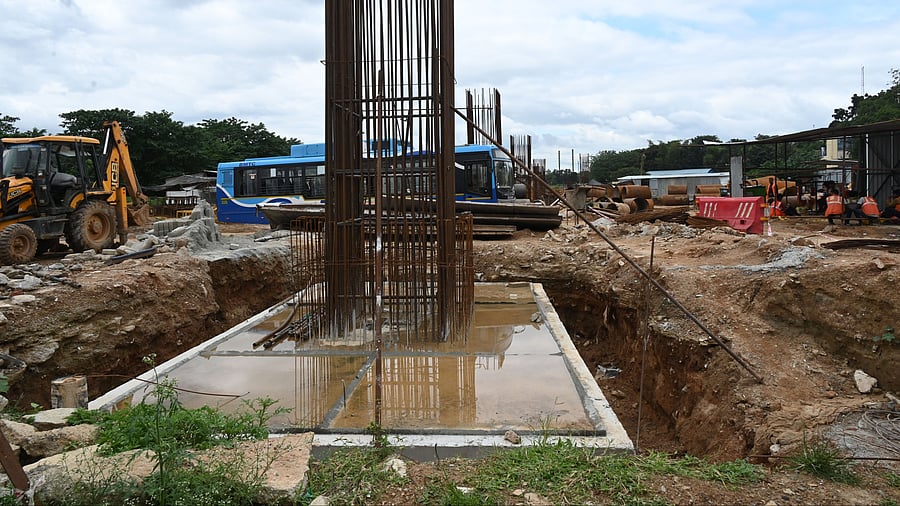
The BMRCL’s Namma metro works in 45 acres of KIADB lands at Hebbal in Bengaluru on Friday.
Credit: DH Photo B K Janardhan
The Karnataka Small Scale Industries Association (KASSIA) have sought amendments to the Karnataka Land Reforms Act, 1961, as small and medium enterprises (SMEs) are finding it increasingly too expensive to procure land.
The association pointed out that presently 90 per cent of the enterprises operate out of private industrial areas that lack adequate infrastructure. The members urged the government to step in and acquire land under Section 109 of the Act to develop industrial estates and also upgrade facilities, including power supply in existing industrial areas.
They also requested that Karnataka State Small Industries Development Corporation (KSSIDC) be empowered to acquire land directly for the formation of new industrial estates for SMEs or for the Karnataka Industrial Areas Development Board (KIADB) to allot undeveloped land without developmental charges to KSSIDC.
Speaking on behalf of the association, its president, MG Rajagopal also called for changes in the state labour policy, arguing that a singular policy, even on minimum wages applied across industries, is problematic for SMEs that hire school dropouts and cannot afford to pay the same wages as larger enterprises. They are also unable to cope with the fast changing guidelines from the labour department. In light of these issues, the association is seeking an exclusive labour policy for SMEs with lesser compliance and different minimum wage requirements.
Beyond this, they sought the removal of ‘double-taxation’ on industrial areas by both KIADB or KSSIDC as well as by municipal authorities, though the latter is not into maintaining the land. They also want property tax levied on them to be on par with the residential segment. The body also asked for a reduction in stamp duty.
Their entreaties also included a revisit of the amendments to the Karnataka Factories Rules, 1969, which jacked up certain fees for services rendered by government agencies by as much as 900 per cent and also raised the licensing fees.